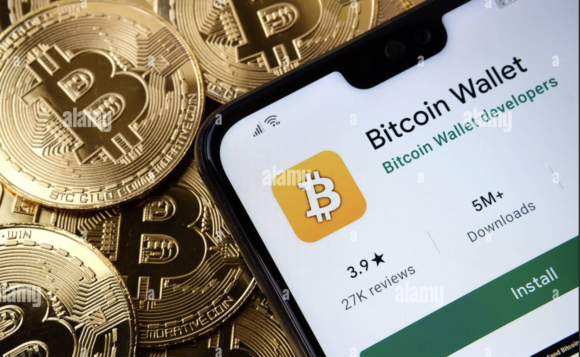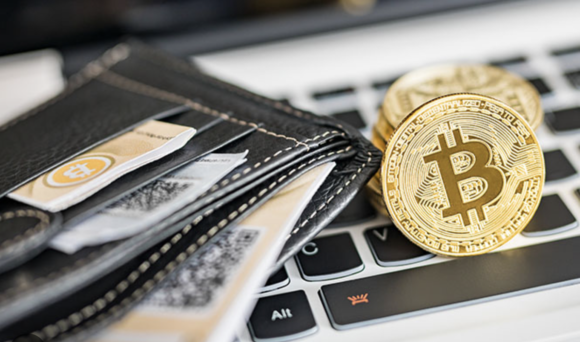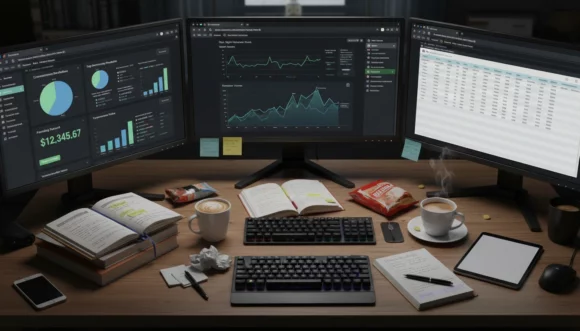Cryptocurrency wallets are your digital pockets, which are crucial for anyone who steps into the crypto world. They store your digital assets securely and handle the necessary details to manage your crypto transactions without a hitch.
When cryptocurrencies first popped up, the concept of holding digital money was straight out of a sci-fi novel. But here we are, with crypto revolutionizing finance and trading as we know it. Over time, wallets have evolved from simple digital vaults to sophisticated tools offering enhanced security and user experience.
Security is a primary concern when handling digital assets. With cyber threats lurking around every corner, a reliable wallet not only guards against unauthorized access but also gives peace of mind. Balancing security with ease of use is essential for a smooth crypto experience. No one wants to struggle with complex processes when they could be focusing on their investment strategies.
As we journey through the world of cryptocurrency wallets, the aim is clear: figuring out which wallet suits your needs best, ensuring your assets are safe, and making your transactions effortless. With the right knowledge and tools, navigating this dynamic landscape becomes less daunting and more empowering.
Types of Cryptocurrency Wallets: Which One Suits You?
Cryptocurrency wallets come in various flavors, so it’s about finding the one that fits with your digital lifestyle. First, there’s the hardware wallet. Think of it as a physical device, similar to a USB stick, offering top-notch security by keeping your private keys offline. It’s perfect if you prioritize security over convenience since accessing your funds requires a physical device.
On the other hand, software wallets are all about ease and accessibility. These live on your computer or smartphone, making them super handy for frequent transactions. However, ease brings vulnerability as they are constantly connected to the internet. Striking a balance between ease and security is crucial here.
Mobile wallets are particularly appealing for users who love trading on the go. They’re practical and can scan QR codes for quick transactions but can be compromised if your phone gets hacked. It’s vital to reinforce them with strong authentication methods.
Desktop wallets install right on your PC, offering solid security when kept free of malware. Although not as portable as mobile wallets, they provide control over your keys without external interference. Keep your computer secure to leverage their full potential.
For those who value something tangible, paper wallets offer a unique charm. They involve printing out your keys on a piece of paper. This method is safe from digital threats but you must keep the printout secure from physical damage or loss.
Choosing the right wallet boils down to your own trading habits and security preferences. If you’re making frequent trades, a software or mobile wallet might be more aligned with your needs. For those focused on long-term investment, hardware or paper wallets could be the way to go. Each wallet type brings its own set of advantages and potential pitfalls, so weigh your options carefully.
Top Security Features to Look for in a Wallet
Security is the backbone of any decent cryptocurrency wallet. Without strong security features, your digital assets are at risk, making the choice of wallet even more critical. Let’s talk about some of the top security aspects to consider when selecting your crypto storage solution.
Two-factor authentication (2FA) is an absolute must. While a password offers a baseline level of protection, 2FA adds an extra layer by requiring a second form of identification, like a text code or app-based verification. This makes unauthorized access much harder.
Biometric verification, such as fingerprint or facial recognition, provides another level of security. It uses your unique biological traits to ensure that only you can access your wallet. It’s quick, efficient, and increases the safety of your funds.
Encryption plays a crucial role in safeguarding your data. A wallet with strong encryption features keeps your private keys and transaction data away from prying eyes. This makes it significantly harder for cybercriminals to steal your information.
Cold storage options are becoming increasingly popular. They keep your cryptos offline, which means they’re immune to online hacking attempts. While it might not be as convenient for frequent trades, it’s unmatched for long-term security.
A decentralized security model also adds a significant layer of protection. With no central point to attack, decentralized wallets can offer a safer haven for your digital currency.
Ultimately, securing your assets requires a proactive approach. Regularly update your wallet software, use complex, unique passwords, and never share your private keys. By incorporating these features, you’re setting yourself up for a secure crypto experience.
User Experience: Navigating Ease and Efficiency
A wallet that’s a pain to use can be downright frustrating. That’s why user experience is a key factor when picking out a cryptocurrency wallet. It’s not just about security; it’s about how smoothly you can manage your digital assets daily.
An intuitive interface is a massive plus. A user-friendly design means you can easily navigate the wallet without getting bogged down by technical jargon or complicated processes. Look for wallets where every function—sending, receiving, or checking your balance—is straightforward and clear.
Multi-currency support is another handy feature to consider. If you’re dealing with various cryptocurrencies, having a wallet that supports multiple coins saves time and hassle. It simplifies tracking and managing your diversified portfolio from one place.
Wallet app integrations can significantly enhance your experience. Apps that sync smoothly with exchanges or other financial tools are super beneficial. They streamline processes, making transactions more efficient and leaving less room for error.
Customer support and community forums can be lifesavers. Whether you’re a newcomer or an experienced user, technical hiccups happen. Access to helpful customer service or active community forums means problems can be resolved quickly, keeping your crypto activities running smoothly.
When combined, these user experience factors turn a standard wallet into a versatile and efficient financial tool. Knowing what to look for can save you loads of time and frustration, ensuring you concentrate on making smart crypto decisions instead.
Top Reviewed Wallets in 2023: Our Recommendations
Choosing a wallet that stands up to scrutiny isn’t an easy task. With numerous options on the market, it’s important to look at wallets that have garnered positive feedback from both users and experts. Here are a few that have made waves this year, offering a combination of security, usability, and unique features.
Ledger and Trezor continue to lead the hardware wallet segment. They’re praised for their robust security protocols, thanks to offline storage, and a track record of reliability. These wallets are excellent choices for those who prioritize keeping their assets safe from online threats.
Exodus is well-regarded among software wallets. It’s noted for its attractive and user-friendly interface, making it a hit with beginners and seasoned traders alike. The ability to support various cryptocurrencies just adds to its appeal, simplifying the portfolio management process.
For mobile users, Trust Wallet stands out. It boasts solid security features like biometric verification and offers integration with decentralized applications (dApps). Having the backing of Binance, a notable name in the crypto exchange world, adds another layer of trust.
If you’re looking for a wallet that’s community-driven, Electrum has been a favorite among Bitcoin enthusiasts for years. Its lightweight nature ensures quick operations without occupying much space, and it’s been around long enough to prove its reliability.
Wallets like these have earned their place through consistent performance, adaptability to new security challenges, and favorable user experiences. Selecting one of these well-reviewed wallets gives you peace of mind that your digital assets are in capable hands.
Best Practices: Keeping Your Digital Assets Secure
Protecting your digital assets isn’t just about choosing a secure wallet, it also involves smart practices to keep threats at bay. Regularly backing up your wallet is one of the simplest yet crucial steps. This ensures that even if something goes awry with your primary device, your funds aren’t lost.
Keep your software updated. Wallet providers often release updates to patch security vulnerabilities or improve user experience. Ignoring these can leave you exposed to known threats that could have been easily avoided.
Phishing scams are a real threat in the crypto world. Always double-check URLs and email senders before entering your wallet information. Scammers often create convincing replicas of legitimate sites to steal your data. Trust only verified sources and be suspicious of unsolicited communications.
When online, exercise caution and avoid sharing personal information. Your private keys are particularly sensitive; sharing them even accidentally could lead to unauthorized access to your wallet.
Develop a strategic approach for handling your cryptocurrencies. If you’re holding for the long term, consider moving your assets to cold storage solutions like hardware wallets. This minimizes exposure to online risks.
Being proactive about security means staying informed about potential threats and industry best practices. Engage with reputable community forums or follow reliable sources to keep abreast of new developments or security advisories.
By coupling best practices with a secure wallet choice, you can navigate the crypto landscape with confidence, knowing your assets are well-protected.
Conclusion: Investing in the Right Wallet
Choosing the right cryptocurrency wallet is crucial in shaping your overall digital asset experience. It’s more than a safe place for your tokens; it acts as both a guardian and facilitator of your crypto activities.
While diving into the world of wallets, remember that each type has its own strengths. Whether you go for a hardware wallet like Ledger for its robust security or Trust Wallet for mobile convenience, align your choice with your unique needs and trading habits.
Security should always be top priority, supported by good user practices such as enabling two-factor authentication and staying vigilant against scams. By taking these steps, you ensure an extra layer of protection for your valuable assets.
User experience plays a vital role too. A wallet that’s easy to navigate can enhance your confidence and make daily crypto activities seamless and straightforward.
The landscape of digital currency is constantly evolving, with new innovations and security challenges emerging regularly. It’s essential to stay informed and adapt to these changes. Explore resources, engage with the community, and continually educate yourself to keep ahead of the curve.
Being proactive in your wallet choice and crypto practices empowers you to make informed, confident decisions in managing your digital finances.










Great breakdown of the best cryptocurrency wallets! I really like how you compared security, ease of use, and features—it makes it much easier to choose the right one. The part about hardware vs. software wallets was super helpful! Do you think beginners should start with a hardware wallet, or is a software wallet safe enough for smaller amounts? Thanks for sharing this valuable info! 😊
Thanks so much for the kind words! 😊 I’m glad the comparison helped you! For beginners, I’d say it depends on the amount you plan to store. If you’re dealing with small amounts or just starting out, a software wallet should be safe enough, especially if you take precautions like enabling two-factor authentication. However, if you’re planning to store larger amounts or long-term holdings, a hardware wallet is a great investment for added security. It’s always good to start with what feels comfortable for you and scale up as needed! Let me know if you have any other questions!